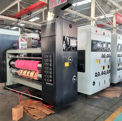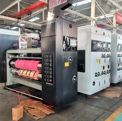
Comprehensive Guide to Bone Marrow Transplant: Types, Procedures, Uses, and Cost of Bone Marrow Transplant in India
May 23, 2024
Introduction
A bone marrow transplant (BMT), also referred to as a hematopoietic stem cell transplant, is a critical medical intervention that involves replacing damaged or destroyed bone marrow with healthy stem cells. This procedure is primarily used to treat patients with specific cancers, blood disorders, and immune system deficiencies, aiming to restore the bone marrow's capacity to produce healthy blood cells, thereby improving the patient's overall health and survival prospects.

Different Types of Bone Marrow Transplants
Bone marrow transplants are categorized into two main types:
Autologous Transplant: This procedure entails harvesting the patient's own stem cells prior to undergoing intensive treatments such as chemotherapy or radiation. After these treatments, the harvested stem cells are reintroduced into the patient's body to regenerate healthy bone marrow.
Allogeneic Transplant: This procedure uses stem cells from a donor, who may be a family member or an unrelated person with a genetic match. Although more complex and carrying a higher risk of complications, allogeneic transplants can be more effective for certain conditions.
Conditions Treated with Bone Marrow Transplants
BMTs are commonly used to treat a variety of serious health conditions, including:
- Leukemia
- Lymphoma
- Multiple myeloma
- Severe aplastic anemia
- Genetic blood disorders (e.g., sickle cell anemia, thalassemia)
- Immune deficiency disorders
The Bone Marrow Transplant Process
The process of undergoing a BMT involves several crucial steps:
- Preparation: This step includes comprehensive testing to ensure the patient is a suitable candidate for the procedure and locating a compatible donor if necessary.
- Conditioning: Patients receive chemotherapy and/or radiation to eliminate the diseased bone marrow.
- Transplantation: Healthy stem cells are infused into the patient’s bloodstream, where they migrate to the bone marrow and start generating new blood cells.
- Recovery: Patients are closely monitored for potential complications, such as infections and graft-versus-host disease in allogeneic transplants, along with other possible side effects.
Cost of Bone Marrow Transplant in India
The cost of bone marrow transplants in India is considerably lower compared to Western countries, making it an attractive option for international patients seeking cost-effective medical treatment. The cost varies depending on the type of transplant, the hospital, location, and the complexity of the case. Typically, the cost of an autologous transplant ranges from INR 10 to 20 lakhs (approximately USD 13,000 to 26,000), whereas an allogeneic transplant can cost between INR 15 to 35 lakhs (approximately USD 20,000 to 46,000).
These costs generally encompass pre-transplant evaluations, the transplant procedure, hospitalization, and post-transplant care. However, additional expenses may arise from donor searches, medications, and any complications during recovery.
Conclusion
Bone marrow transplants present a potential cure and renewed hope for patients with life-threatening conditions. Although the procedure is complex and costly, advancements in medical technology and the availability of affordable treatment options in countries like India are making this crucial therapy more accessible. By understanding the different types of transplants, the procedure, and associated costs, patients and their families can make well-informed decisions about pursuing this essential treatment.


















